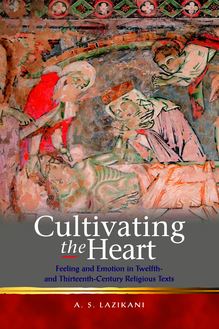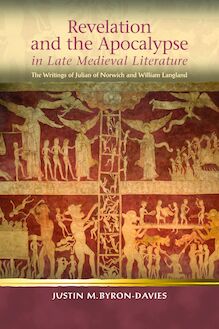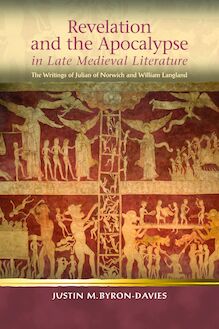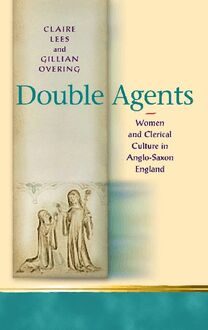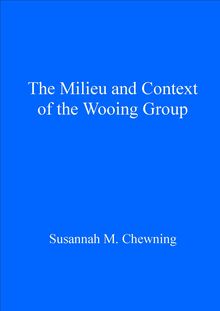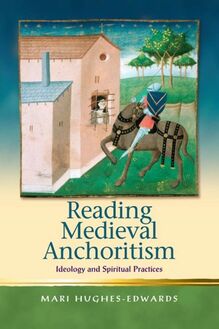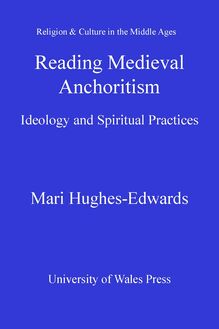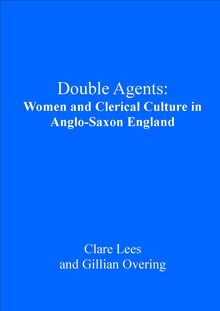-
 Univers
Univers
-
 Ebooks
Ebooks
-
 Livres audio
Livres audio
-
 Presse
Presse
-
 Podcasts
Podcasts
-
 BD
BD
-
 Documents
Documents
-
- Cours
- Révisions
- Ressources pédagogiques
- Sciences de l’éducation
- Manuels scolaires
- Langues
- Travaux de classe
- Annales de BEP
- Etudes supérieures
- Maternelle et primaire
- Fiches de lecture
- Orientation scolaire
- Méthodologie
- Corrigés de devoir
- Annales d’examens et concours
- Annales du bac
- Annales du brevet
- Rapports de stage
La lecture à portée de main
Vous pourrez modifier la taille du texte de cet ouvrage
Découvre YouScribe en t'inscrivant gratuitement
Je m'inscrisDécouvre YouScribe en t'inscrivant gratuitement
Je m'inscrisEn savoir plus
Vous pourrez modifier la taille du texte de cet ouvrage
En savoir plus

Description
Sujets
Informations
| Publié par | University of Wales Press |
| Date de parution | 01 février 2009 |
| Nombre de lectures | 0 |
| EAN13 | 9781783163618 |
| Langue | English |
Informations légales : prix de location à la page 0,1900€. Cette information est donnée uniquement à titre indicatif conformément à la législation en vigueur.
Extrait
RELIGION AND CULTURE IN THE MIDDLE AGES
Double Agents
Series Editors
Denis Renevey (University of Lausanne)
Diane Watt (Aberystwyth University)
Editorial Board
Miri Rubin (Queen Mary, University of London)
Jean-Claude Schmitt (École des Hautes Études en
Sciences Sociales, Paris)
Fiona Somerset (Duke University)
Christiania Whitehead (University of Warwick)
RELIGION AND CULTURE IN THE MIDDLE AGES
Double Agents
Women and Clerical Culture in Anglo-Saxon England
CLARE A. LEES AND GILLIAN R. OVERING -->
UNIVERSITY OF WALES PRESS CARDIFF 2009
© Clare A. Lees and Gillian R. Overing, 2009
All rights reserved. No part of this book may be reproduced, stored in a retrieval system, or transmitted, in any form or by any means, electronic, mechanical, photocopying, recording or otherwise, without clearance from the University of Wales Press, 10 Columbus Walk, Brigantine Place, Cardiff, CF10 4UP.
www.uwp.co.uk
British Library Cataloguing-in-Publication Data
A catalogue record for this book is available from the British Library.
ISBN 978-0-7083-2183-6
e-ISBN 978-1-7831-6361-8
The rights of Clare A. Lees and Gillian R. Overing to be identified as authors of this work has been asserted by them in accordance with sections 77, 78 and 79 of the Copyright, Designs and Patents Act 1988.
Cover illustration: Nun Confessing to an Abbess.Picture taken from Queen Mary Psalter.
For our mothers
Winifred Pauline Lees and Rose Overing
C ONTENTS
Series Editors Preface
Preface
Acknowledgements, 2001
List of Abbreviations
Introduction
1 Patristic Maternity: Bede, Hild and Cultural Procreation
2 Orality, Femininity and the Disappearing Trace in Early Anglo-Saxon England
3 Literacy and Gender in Later Anglo-Saxon England
4 Figuring the Body: Gender, Performance, Hagiography
5 Pressing Hard on the Breasts of Scripture: Metaphor and the Symbolic
Notes
Bibliography
S ERIES E DITORS P REFACE
Religion and Culture in the Middle Ages aims to explore the interface between medieval religion and culture, with as broad an understanding of those terms as possible. It puts to the forefront studies which engage with works that significantly contributed to the shaping of medieval culture. However, it also gives attention to studies dealing with works that reflect and highlight aspects of medieval culture that have been neglected in the past by scholars of the medieval disciplines. For example, devotional works and the practice they infer illuminate our understanding of the medieval subject and its culture in remarkable ways, while studies of the material space designed and inhabited by medieval subjects yield new evidence on the period and the people who shaped it and lived in it. In the larger field of religion and culture, we also want to explore further the roles played by women as authors, readers and owners of books, thereby defining them more precisely as actors in the cultural field. The series as a whole investigates the European Middle Ages, from c .500 to c .1500. Our aim is to explore medieval religion and culture with the tools belonging to such disciplines as, among others, art history, philosophy, theology, history, musicology, the history of medicine, and literature. In particular, we would like to promote interdisciplinary studies, as we believe strongly that our modern understanding of the term applies fascinatingly well to a cultural period marked by a less tight confinement and categorization of its disciplines than the modern period. However, our only criterion is academic excellence, with the belief that the use of a large diversity of critical tools and theoretical approaches enables a deeper understanding of medieval culture. We want the series to reflect this diversity, as we believe that, as a collection of outstanding contributions, it offers a more subtle representation of a period that is marked by paradoxes and contradictions and which necessarily reflects diversity and difference, however difficult it may sometimes have proved for medieval culture to accept these notions.
P REFACE
We first published Double Agents: Women and Clerical Culture in Anglo-Saxon England with the University of Pennsylvania Press in 2001. It was a book that was many years in the making and in the eight years to this re-issue with the University of Wales Press we have continued to work together on various projects. Our collaborative work is ongoing and always in process and it is in this spirit that we revisit Double Agents now.
Some of the premises of Double Agents have remained with us and we suspect always will. In our Introduction, we asked a question that we had found ourselves asking many times before: simply, where are the women in Anglo-Saxon England? We wondered, and still do, about those women involved in the early Germanic invasions - whom did they marry, how were they educated and what role did they play in the education of others? Our book explores these and many other questions and begins to formulate answers to them. It draws deliberately on Anglo-Saxon vernacular texts and Latin texts, and on those works most familiar to literary scholars (such as the Exeter Book Riddles or Cædmon s Hymn, the first so-called poem in English, and the hagiography of female saints) as well as historians (wills, charters, the cult of relics), and it reconsiders, from the perspective of gender and women s agency, some of the key conceptual issues that studying Anglo-Saxon England presents (the relation of orality to literacy; that of poetry and sanctity to belief; the cultural significance of names, naming and metaphors in Anglo-Saxon writing). In this way, Double Agents aims to show the extent to which the female, the feminine symbolic and/or the female body was central to the production of cultural meaning in Anglo-Saxon England, regardless of whether any particular work was written by a woman, featured a female figure or was intended for a female audience.
Since the book s publication, we have found ourselves returning time and again to the basic premise of how women and Anglo-Saxon culture can be thought of as co-constitutive. We are still trying to work between the two reified poles of history and literature and we are still examining how women and/or the feminine are formative elements in the significatory practices of the Anglo-Saxons. That is, we are still thinking about how women might have been engaged in cultural practices as well as how they might form the objects of those practices. We continue to work with the mediated connections to be discovered by analysing forms of representation that the textual evidence of the Anglo-Saxon period offers us. Notions of lived experience and of the self, the subject, the body and the psyche, remain powerful, if elusive, ways into understanding Anglo-Saxon culture. We still think culture is made by people, in sum.
The project of working with, on and about women in Anglo-Saxon England is a collective one, though perhaps still a minority interest among many Anglo-Saxonists. Shari Horner s The Discourse of Enclosure: Representing Women in Old English Literature was also published in 2001, so we were not able to take account of it in Double Agents. Of the (all too) few books and edited collections on women and gender in our field published since then, we wish to acknowledge in particular the work of Carol Braun Pasternack, editor of Gender and Difference in the Middle Ages with Sharon Farmer (2003), and of Sex and Sexuality in Anglo-Saxon England with Lisa Weston (2004), and that of Stacy Klein, Ruling Women: Queenship and Gender in Anglo-Saxon Literature (2006). In many ways the work of this book continues. Indeed, in our own subsequent work, whether collaboratively (in, for example, Gender and Empire (2004), and A Place to Believe In: Locating Medieval Landscapes (2006) or separately (in, for example, Gender in Debate, edited by Clare with Thelma S. Fenster (2002), or Gillian s forthcoming work on Beowulf on Gender ), we continue to benefit from the small but thriving group of largely female scholars who, like us, keep returning to questions of women and Anglo-Saxon culture.
Repetition and reiteration, as Judith Butler teaches us, are not always static; rather, we have found them to be transformative intellectual processes. Another Judith, Judith Bennett, also influenced our thinking for Double Agents; she, too, has revisited her work on continuities and repetitions in women s history and, most recently, has re-emphasized the political and intellectual importance of continuing to put women back into history. We share with Bennett a sense that to do women s history now is to continue to challenge and confront those disciplinary practices that exclude and elide women. We also share her conviction that feminist history needs a deeper understanding of the distant past in order to forge an equitable future, a future where more of us will take the risk of setting our work within larger intellectual and political contexts , and one where we need to be less safe and more offensive (History Matters, p. 154). Given these persistent exclusionary practices and an intellectual and political climate that may glibly assume that feminism has achieved its aims and that it is, like the subject of women and gender, now passé, we are particularly grateful to the University of Wales Press for reprinting Double Agents now
In this spirit, we also examine our own elisions and exclusions. Double Agents was very much a book about women and gender: we did not take on sex, sexuality and same-sex desire. We simply didn t get there. Others did and were already working on the tremendously important evidence of, for example, early religious history and the lives of saints for our understanding of issues of same-sex, queer and transgendered desires. In this regard, we are particularly grateful to Diane Watt for her provocative and supportive responses to this book, which have open
-
 Univers
Univers
-
 Ebooks
Ebooks
-
 Livres audio
Livres audio
-
 Presse
Presse
-
 Podcasts
Podcasts
-
 BD
BD
-
 Documents
Documents
-
Jeunesse
-
Littérature
-
Ressources professionnelles
-
Santé et bien-être
-
Savoirs
-
Education
-
Loisirs et hobbies
-
Art, musique et cinéma
-
Actualité et débat de société
-
Jeunesse
-
Littérature
-
Ressources professionnelles
-
Santé et bien-être
-
Savoirs
-
Education
-
Loisirs et hobbies
-
Art, musique et cinéma
-
Actualité et débat de société
-
Actualités
-
Lifestyle
-
Presse jeunesse
-
Presse professionnelle
-
Pratique
-
Presse sportive
-
Presse internationale
-
Culture & Médias
-
Action et Aventures
-
Science-fiction et Fantasy
-
Société
-
Jeunesse
-
Littérature
-
Ressources professionnelles
-
Santé et bien-être
-
Savoirs
-
Education
-
Loisirs et hobbies
-
Art, musique et cinéma
-
Actualité et débat de société
- Cours
- Révisions
- Ressources pédagogiques
- Sciences de l’éducation
- Manuels scolaires
- Langues
- Travaux de classe
- Annales de BEP
- Etudes supérieures
- Maternelle et primaire
- Fiches de lecture
- Orientation scolaire
- Méthodologie
- Corrigés de devoir
- Annales d’examens et concours
- Annales du bac
- Annales du brevet
- Rapports de stage
